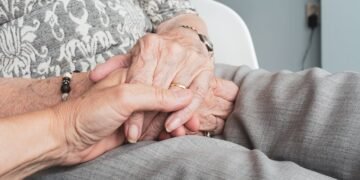Analysis by SASMJ
Winter fuel poverty is a significant issue in the UK, particularly affecting elderly individuals who are more susceptible to severe health conditions. Fuel poverty occurs when a household cannot afford to keep their home warm, leading to cold indoor environments that can exacerbate existing health problems and contribute to new ones.
Health Impacts:
- Respiratory Problems: Cold temperatures can worsen conditions like asthma and increase the risk of respiratory infections.
- Cardiovascular Issues: Exposure to cold can elevate blood pressure and increase the risk of heart attacks and strokes.
- Mental Health: Living in a cold home can contribute to depression, anxiety, and social isolation.
- Hypothermia: Elderly individuals are at higher risk of hypothermia due to decreased body fat and slower metabolism.
Contributing Factors:
- Rising Energy Costs: Increasing fuel prices make heating homes more expensive, disproportionately affecting those on fixed incomes.
- Low Income: Many older adults live on limited pensions, making it challenging to cover heating expenses.
- Poor Housing Conditions: Older homes may lack proper insulation, leading to heat loss and higher heating requirements.
Wider Background:
- Excess Winter Deaths: The UK often sees a spike in mortality rates during winter months, with a significant number attributed to cold homes and fuel poverty.
- Healthcare Strain: Cold-related illnesses increase hospital admissions, putting additional pressure on the NHS during winter.
- Government Initiatives: Programs like the Winter Fuel Payment, Cold Weather Payment, and the Warm Home Discount Scheme provide financial assistance to help vulnerable populations manage heating costs.
- Charity Support: Organizations such as Age UK and National Energy Action work to raise awareness and provide support services to those affected by fuel poverty.
Relevant Sources for Further Information:
Addressing winter fuel poverty is crucial for safeguarding the health and well-being of the elderly population. Efforts to improve energy efficiency in homes, provide financial assistance, and raise awareness can help mitigate the adverse health effects of cold living conditions.


















